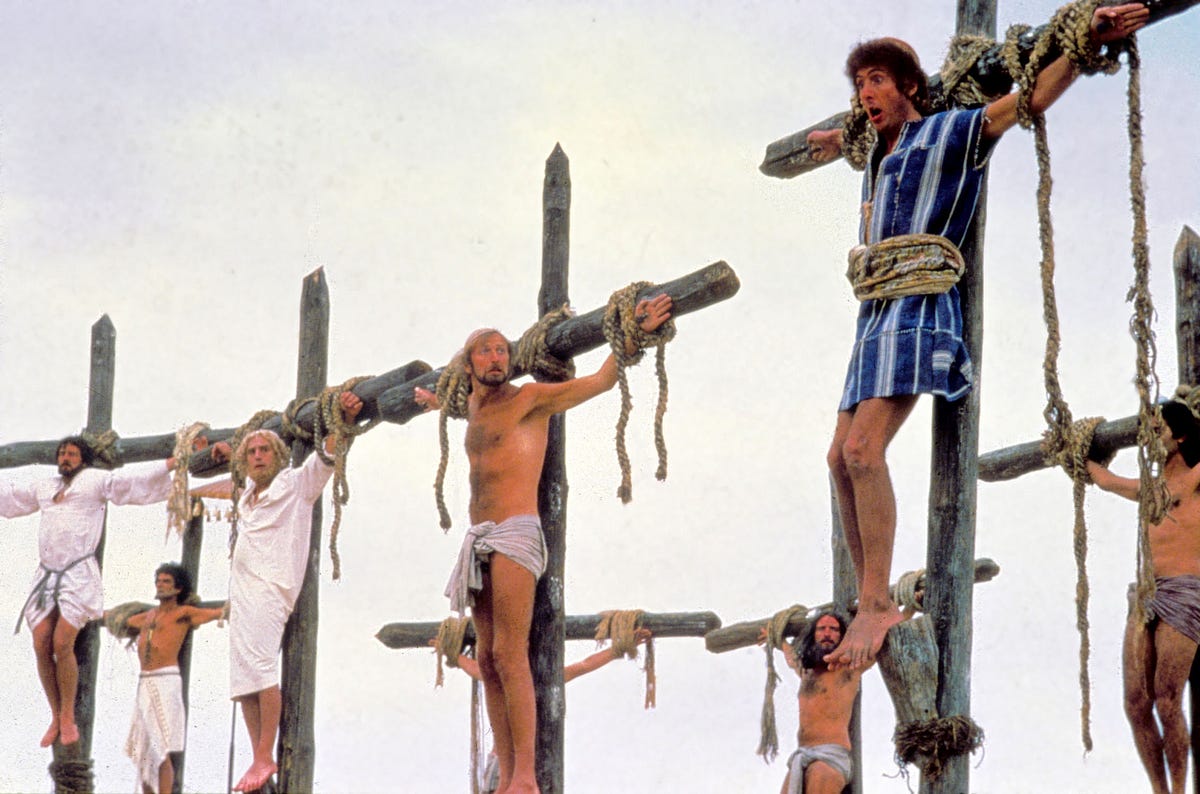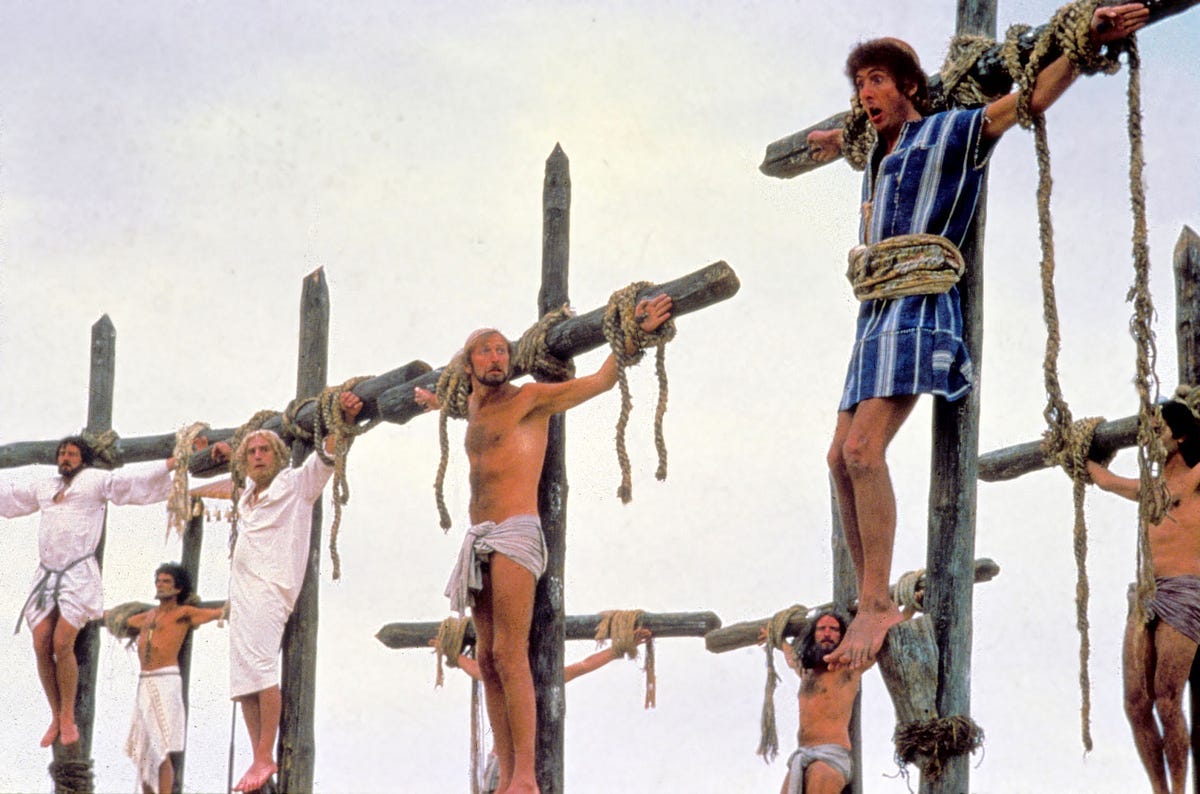“Always Look on the Bright Side of Life”
There is a song from the Monty Python film The Life of Brian that implores us to “always look on the bright side of life.” The fact that…
There is a song from the Monty Python film The Life of Brian that implores us to “always look on the bright side of life.” The fact that the chorus is sung by people being crucified is meant to be ironic. No matter what your opinion of Monty Python might be, remembering to look at the bright side of life is not a bad idea. Without falling into Pollyannaism (is that a word?), the default position of a Christian should be to look at things from a positive perspective. It’s a matter of charity.
Here’s what I mean: part of the virtue of charity requires us to assume — at least initially — the good intentions of others. In our dealings with people, we should seek first to find a positive way that their words or actions can be interpreted. The Catechism of the Catholic Church teaches that “charity demands beneficence and fraternal correction; it is benevolence; it fosters reciprocity and remains disinterested and generous; it is friendship and communion” (CCC 1829).
Yes, sometimes people do cruel things, and sometimes people have ill-will. But most people, most of the time, mean well. In my experience, a significant amount of interpersonal conflict is caused by interpreting something someone said or did in a negative way; and usually in the wrong way. This is damaging to relationships, and uncharitable toward our neighbors.
People don’t always have the best intentions in their hearts. But usually they do. Charity demands that we operate under the assumption that people have good intentions unless they clearly demonstrate otherwise (and then charity demands that we be ready to offer forgiveness).
Choosing to first look at things from a positive point of view is also a good idea in other aspects of life, both in and out of the Church. I can offer a couple of examples.
A little known (and little followed) rule of fasting in the Catholic Church today is to fast for one hour before receiving Holy Communion. When I have occasion to remind people of this rule, they sometimes look at me like I am being Pharisaical. They see this rule as a negative intrusion.
We can choose to look at this as something the Church says we can’t do — don’t eat one hour before receiving the Eucharist. Or we can choose to approach it from a positive perspective — I get to receive the Eucharist! Not eating for an hour before is something I can do to prepare my body to receive Christ and also serve as a reminder that I need to prepare my soul to receive Him, as well. The perspective we choose to adopt makes a difference.
We see this, too, in the matter of celebrating Mass ad orientem (as Cardinal Sarah has recently advocated for). We can adopt a negative perspective and see this as the priest celebrating Mass with his back to the people. Invariably, those I speak to who advocate against this posture take this position. Or we can adopt a positive perspective. We can see it as the priest facing the same direction as the people, in solidarity with them, and leading them in prayer directed together toward the Father. Also invariably, those I speak to who advocate for this posture approach it from this positive perspective.
How we choose to approach things makes a difference in how we perceive them. This is true in other aspects of society. Consider the great political divide in our country today — and I’m not just talking about the current crazy presidential election. People on both sides of the political aisle seem farther apart than they have ever been. How about instead of automatically assuming every statement from the “other side” is going to be ill conceived and wrong headed, let’s have a little charity and look first for the positive aspects.
Whether a politician is a liberal or a conservative, they most likely have good intentions. And they most likely have some good ideas. It seems today people are unwilling to say anything positive about any policy at all put forward by “the other side,” even if it has elements that person may otherwise agree with. Practicing charity and having a positive perspective would undoubtedly help people with opposing political viewpoints work better together and go a long way toward fostering a healthy, functioning government.
Of course there are things a Catholic can never support in good conscience — policies that support intrinsic evils such as abortion, for example. But even people who advocate for these evils generally do so with good — though horribly misguided — intentions. Such evils can and should be opposed while remaining charitable toward those who advocate for them.
This is something we can choose. We can choose to adopt a positive or a negative default attitude. We can be the person who is always complaining, always feeling put-upon, and always in conflict with those around us. Or we can be the person who lives at peace with our neighbors, and is willing to work with others for the common good.
Look on the bright side of life. It’s good for the government. It’s good for the Church. And it’s good for your own peace and contentment.





